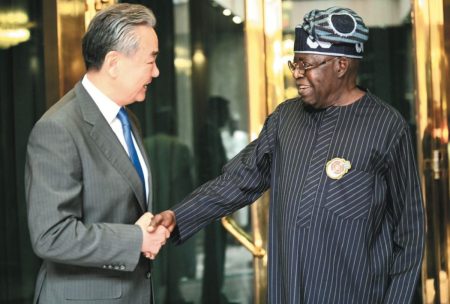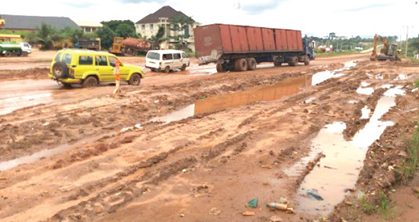
Mkpoikana Udoma
Port Harcourt — The construction of the Bakassi Deep Seaport has attained a major milestone with the signing of the transaction advisory agreement for the full business case, between the Cross River State Government and CPCS Transcom Limited of Canada.
Under the terms of the agreement, CPCS is expected to deploy its expertise in the areas of transaction structuring, public-private partnerships, financial and economic modeling, as well as engineering, social and environmental advisory in the execution of the project.
To ensure compliance with Nigeria’s local content policy, 15 young Cross River indigenes are to be engaged by the Canadian firm.
Speaking after signing the agreement, Cross River State Governor, Ben Ayade, said the development marks the beginning of the realization of the Bakassi deep seaport with an evacuation corridor stretching from Bakassi to Northern Nigeria.
Governor Ayade commended President Muhammadu Buhari, the Minister for Transportation, Mr. Rotimi Amaechi, and the Infrastructure Concession Regulatory Commission for the support given to the project.
The governor said the deep seaport project and 275km superhighway are two projects that will crystallize the prospects and prosperity agenda he envisions for the state.
The 21 meters draft seaport, according to him, will be successful given its location, insisting it will get additional impetus from the viability of the Gulf of Guinea and its maritime corridor.
“The port creates an opportunity for the President to start thinking security-wise and strategically too, on the need for us to have strategic reserves for our petroleum products, on the need for us to have strategic food reserves because strategic reserves are normally situated around the ports so as to allow for the densification of storage in the event of crisis, war or famine.
“So, I believe that this port will play a critical role. Youth restiveness, youth unemployment, kidnapping, radicalism and all those extreme vices that have characterized the Nigeria will completely go down when this project comes to fruition, because indeed, this port is not a Cross River port, it is a Nigeria port, a Gulf of Guinea port. For emphasis, therefore, it is basically targeted at Northern Nigeria.
“Let me us this opportunity therefore to call on all the elders of Northern Nigeria extraction to realise that their vast wealth in terms of mineral deposits ranging from tantalite to iron ore to Cobalt to bauxite to coal amongst others will come to nothing unless you have access to a sea port.
“The evacuation corridor shortens the journey between Northern Nigeria and the Atlantic coastline and that is what we have done to bring Northern Nigeria closer to the Atlantic ocean.”
The governor assure me that his administration has ensured that the port will not suffer the problem of not having outbound cargo.
“So basically speaking, the Bakassi deep Seaport is already mature, ripe, ready and dying to commence. It is specifically prepared for outbound cargo export. If you look at the Mackenzie report, it specifies clearly that Nigeria will be the third largest trading partner with China.
“So the cumulative impact of this is that there will be a huge maritime trade within the Gulf of Guinea and between Nigeria and Europe and China and indeed America and more importantly there will be sufficient outbound cargo. For me, CPCS should have more than enough data to justify the viability of this project.”
Earlier, a representative of CPCS, Mr. Jonathan Millard, shortly after a virtual meeting between the state government and the management team of the Canadian-based firm, expressed confidence in the viability of the project, just as he looked forward to a timely completion of the project.
The agreement signing ceremony, which took place at the Governor’s Conference Room in Government House, Calabar, was witnessed by representatives of the Ministry of Justice and the Infrastructure Concession Regulatory Commission.



